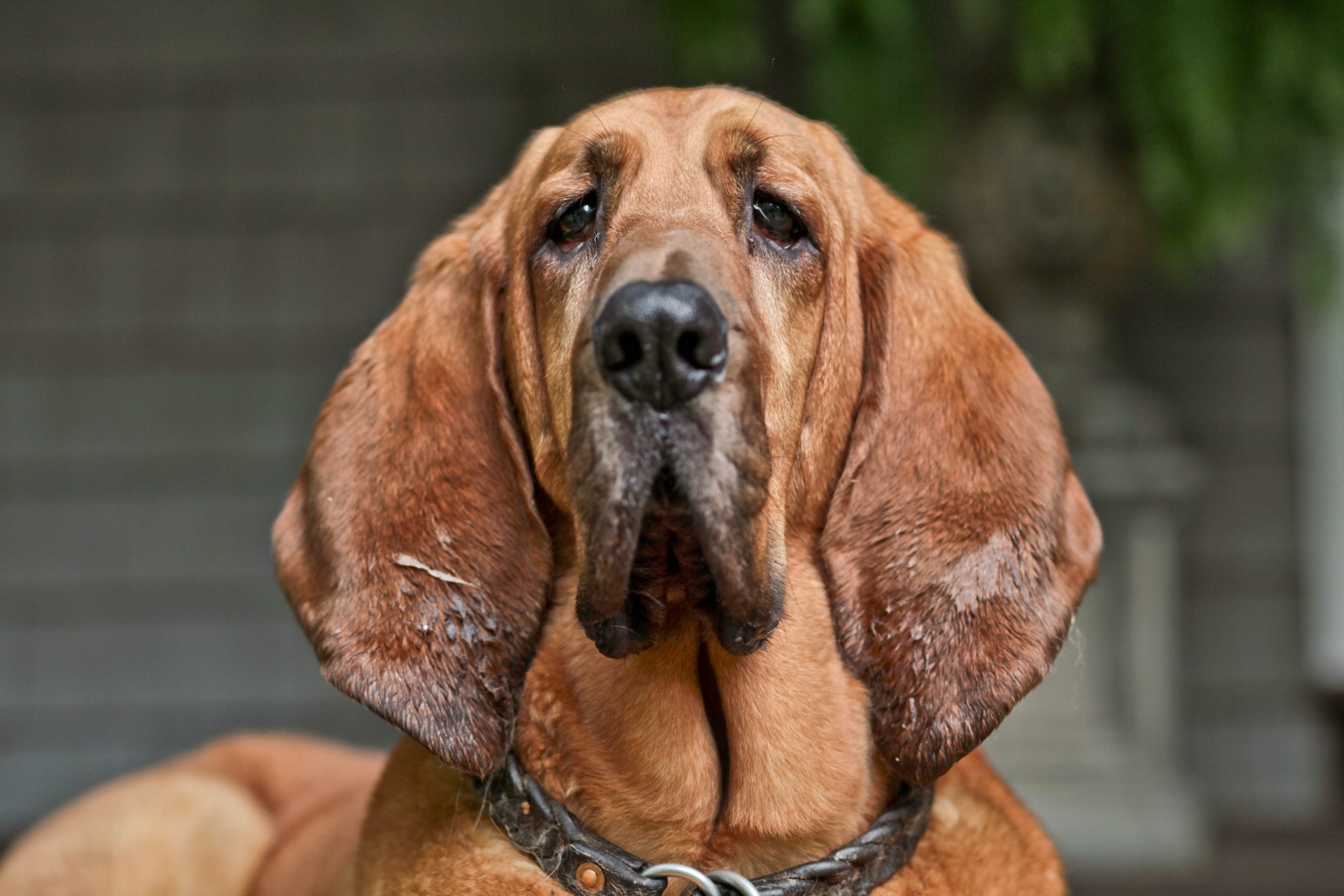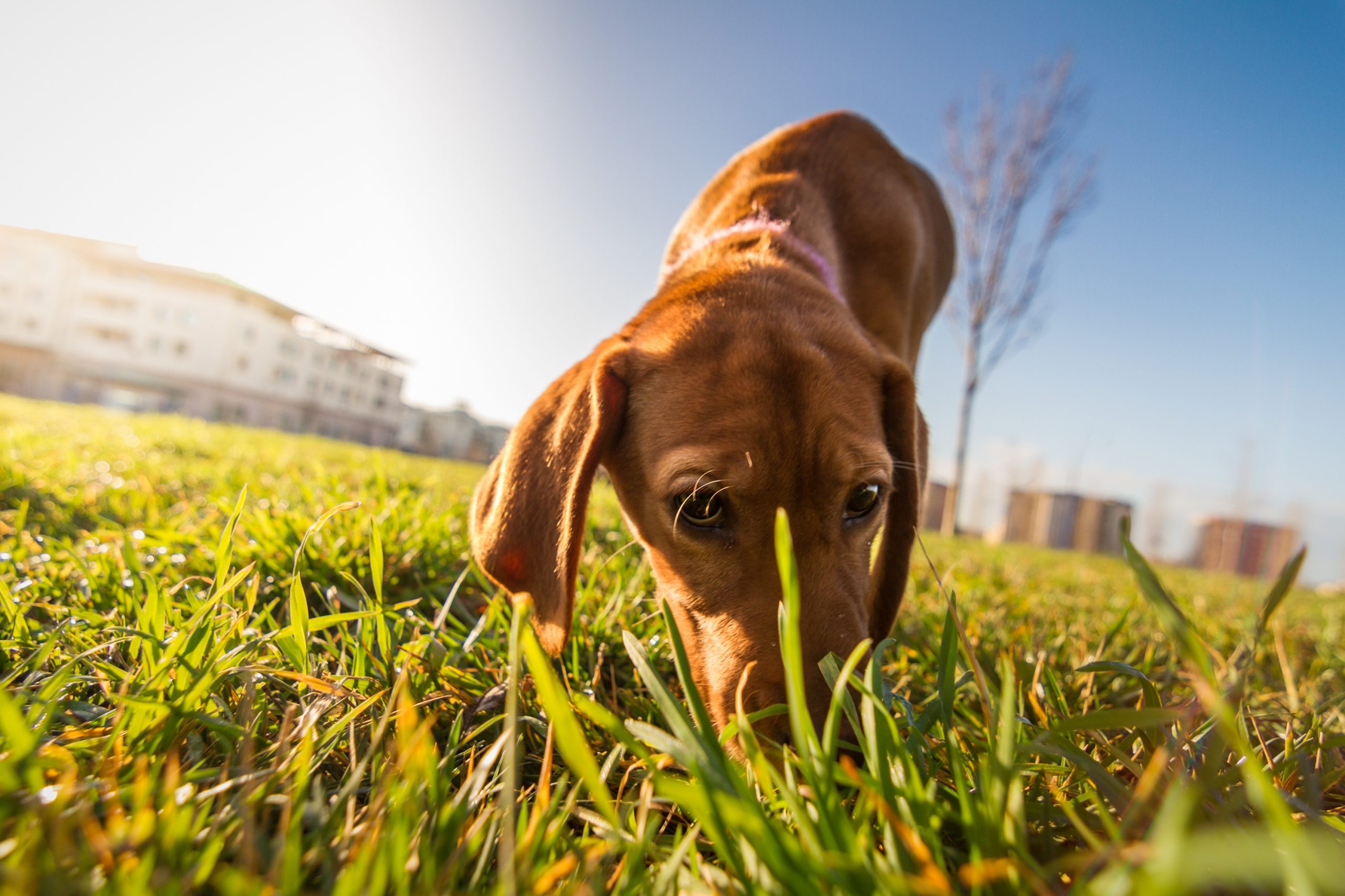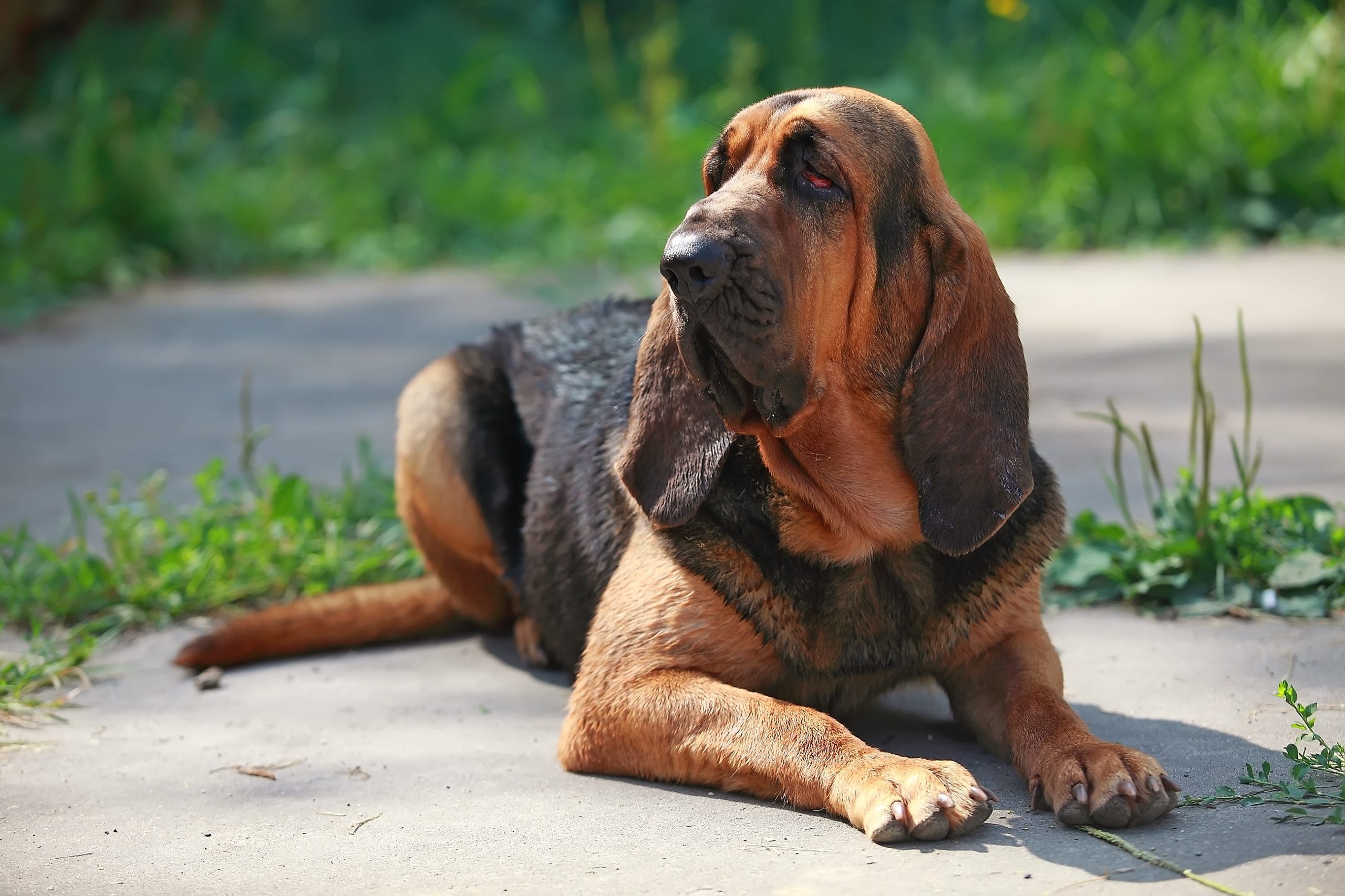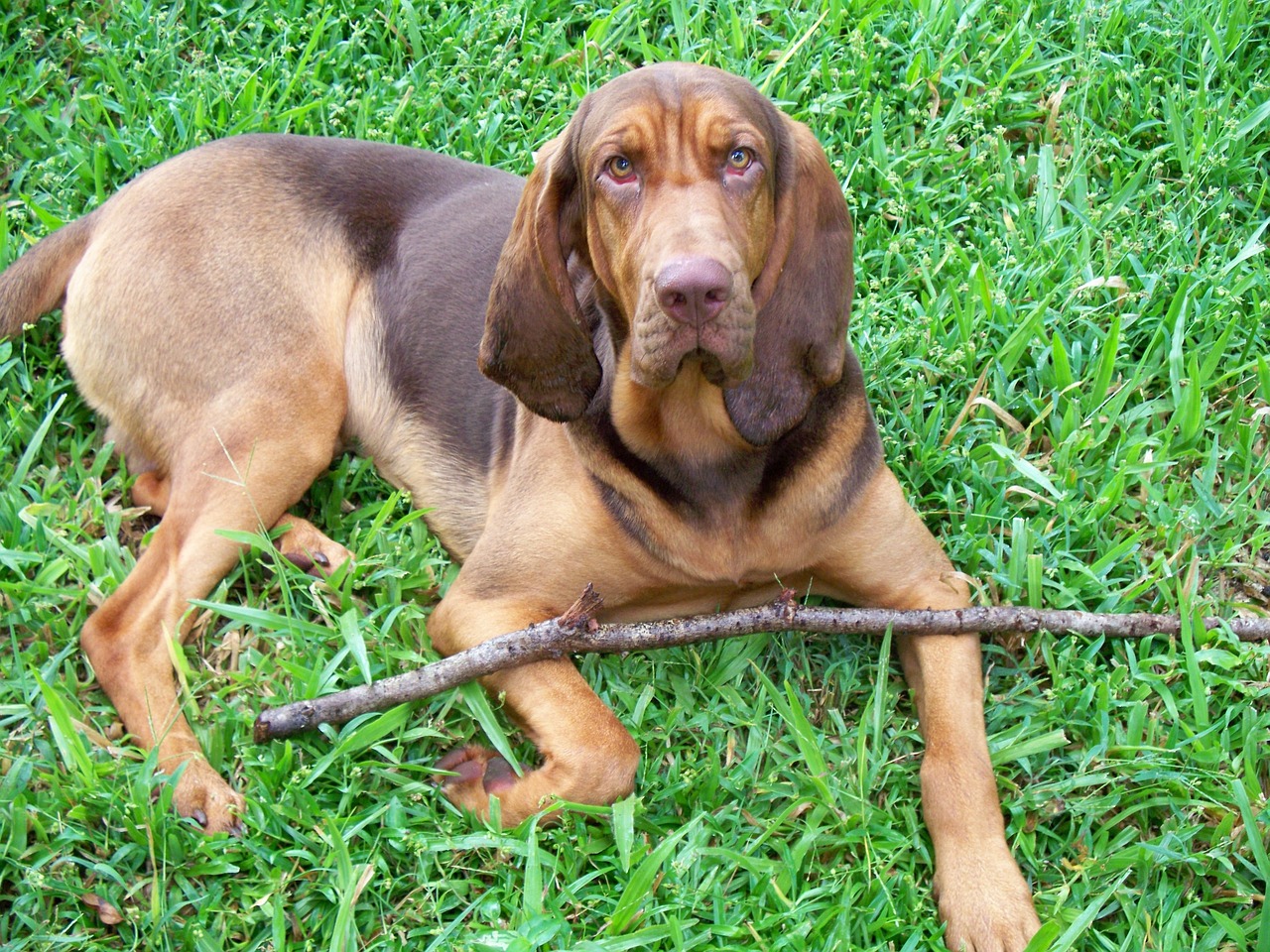Bloodhound
Showing all 5 results
Shelter Dog Meal Donation Count:
Showing all 5 results
The Bloodhound, famous for its unparalleled sense of smell and tracking ability, is a noble and dignified breed. They are well-regarded for their gentle temperament and valued as working dogs and companions.
Initially bred for hunting deer and boar, Bloodhounds can follow scents over great distances and terrain. This skill has made them invaluable in search and rescue and law enforcement.

Bloodhounds have a long history, their origins tracing back to medieval Europe. They were perfected in Belgium and France, and their name is derived from their aristocratic status – “blooded hounds” meant noble hounds.




Prone to bloat, ear infections, and hip dysplasia. Regular health screenings, particularly for their hips and ears, are recommended.
Their coat requires regular brushing and occasional bathing. Particular attention should be given to their ears, which need regular cleaning to prevent infections.
Requires daily exercise, such as long walks or hikes. They particularly enjoy scenting activities. A fenced yard is ideal for them to explore and follow scents safely.
Early socialization and obedience training are essential. Training should be consistent and patient, as they can be independent.
Choose a balanced diet suitable for large breeds. Careful monitoring of their food intake is essential to prevent obesity and bloat.
Caring for a Bloodhound requires a commitment to exercise, grooming, and health needs. They thrive in environments where they can be part of the family and have space to explore. With proper care, Bloodhounds make loyal, affectionate, and noble companions.
The Bloodhound, renowned for its exceptional tracking ability and gentle temperament, is generally a robust breed. However, like all dog breeds, Bloodhounds are predisposed to specific health conditions. Being aware of these and conducting recommended tests can help maintain their health.
Regular veterinary check-ups are essential to catch any health issues early, and prompt attention to changes in your dog's behavior or appearance is critical. With proper care and attention to health, Bloodhounds can lead happy, healthy lives as beloved members of their families.
The iHeartDogs Free Rx Discount Card Program is a pet prescription discount card that can help you save money on your furry friend’s medications. The card is free to sign up for, and you can use it at participating pharmacies nationwide. To use the free program, simply show the card to your pharmacist when you pick up your pet’s prescription. The pharmacist will then scan the card, and you will receive a discount on the price of the medication.LEARN MORE
Caring for a Bloodhound involves various annual expenses, which can vary depending on your location, the individual dog’s needs, and the level of care you choose to provide. Here’s a general breakdown of the annual costs for a Bloodhound:
Total Estimated Annual Cost:
$2500 - $5900
It's important to note that these figures are estimates and can vary. Also, the first year of owning a dog can be more expensive due to one-time costs like spaying/neutering, initial vaccinations, and training. Regular budgeting for your dog's needs and an emergency fund for unforeseen expenses are essential for responsible pet ownership.